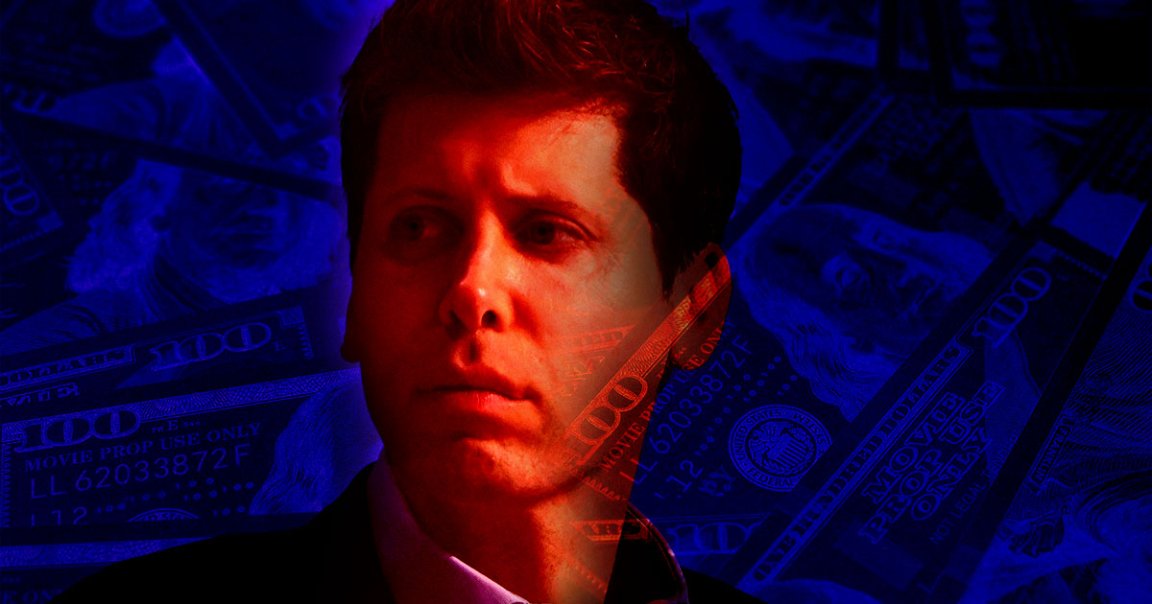
OpenAI was founded as a nonprofit research institute, dedicated to realizing an “artificial general intelligence” that benefits all of humanity.
In a December 2015 blog post introducing the company, its founders, including current CEO Sam Altman and his now bitterly-departed rival Elon Musk, said that to accomplish its goal, it would have to be “unconstrained by a need to generate financial return.”
“Since our research is free from financial obligations, we can better focus on a positive human impact,” the company wrote.
But just shy of a decade later, the ChatGPT maker looks dramatically different. The company has ridden a tidal wave of AI hype, opening itself up to exactly the kind of financial incentives it once attempted to shield itself from.
As CNBC reports, OpenAI is deep into talks about a potential secondary stock sale that would value it at roughly half a trillion dollars, an over fivefold increase compared to just two years ago. Just last week, news emerged that the company secured a funding deal that already values it at a staggering $300 billion.
Altman has made dramatic changes to the company’s structure, effectively erasing its nonprofit roots. In 2019, the company introduced a “capped-profit” subsidiary to attract funds. At the time, OpenAI still claimed its nonprofit parent would retain control, with excess investor funds flowing back into the nonprofit.
But then last year, the company moved to shake off its nonprofit roots even further, restructuring its core business into a for-profit benefit corporation, demonstrating that the draw of financial gain, particularly for its investors, was far too alluring.
“We remain focused on building AI that benefits everyone, and we’re working with our board to ensure that we’re best positioned to succeed in our mission,” a spokesperson told Reuters at the time. “The non-profit is core to our mission and will continue to exist.”
In a May blog post, OpenAI claimed that it would remain under the control of its original non-profit governing board as it restructured itself into a “Public Benefit Corporation (PBC),” a move that was intended to “consider the interests of both shareholders and the mission.”
But actions speak far louder than words. Is OpenAI really after a benevolent superhuman AI that does good for everybody equally — or are we talking about a corrupted entity that puts profits over everything else?
Its claims that it can produce a superhuman AI — which remains an ill-defined and nebulous term to this day — that benefits all of humanity have repeatedly been questioned, especially after it quietly removed a ban on “military and warfare” from its usage policies in early 2024.
OpenAI founder Elon Musk, who quit the firm in 2019, citing disagreements with the group’s direction, has repeatedly needled OpenAI for bending over backwards to “maximize profits for Microsoft, rather than for the benefit of humanity.”
Musk has gone as far as to sue the company several times over the disagreements, despite launching his own profit-maximizing AI company, xAI.
Still, he’s right that OpenAI couldn’t have drifted further from being “unconstrained by a need to generate financial return.” The profit-maximizing entity has massively benefited from shareholders frothing at the mouth to automate jobs, cut costs, and ride a wave of unmitigated hype.
Experts have warned that the AI industry is forming an enormous bubble, surpassing the steep overvaluation of tech companies during the dot-com crisis over two decades ago. The hype surrounding the tech has boosted nine publicly traded companies beyond the $1 trillion valuation in a matter of years, stoking fears that a bubble collapse could take down the economy with it.
And for now, OpenAI is cashing in. A mere four months ago, it announced a $40 billion funding round — the largest amount ever raised by a private company.
More on OpenAI: ChatGPT Now Issuing Warnings to Users Who Seem Obsessed